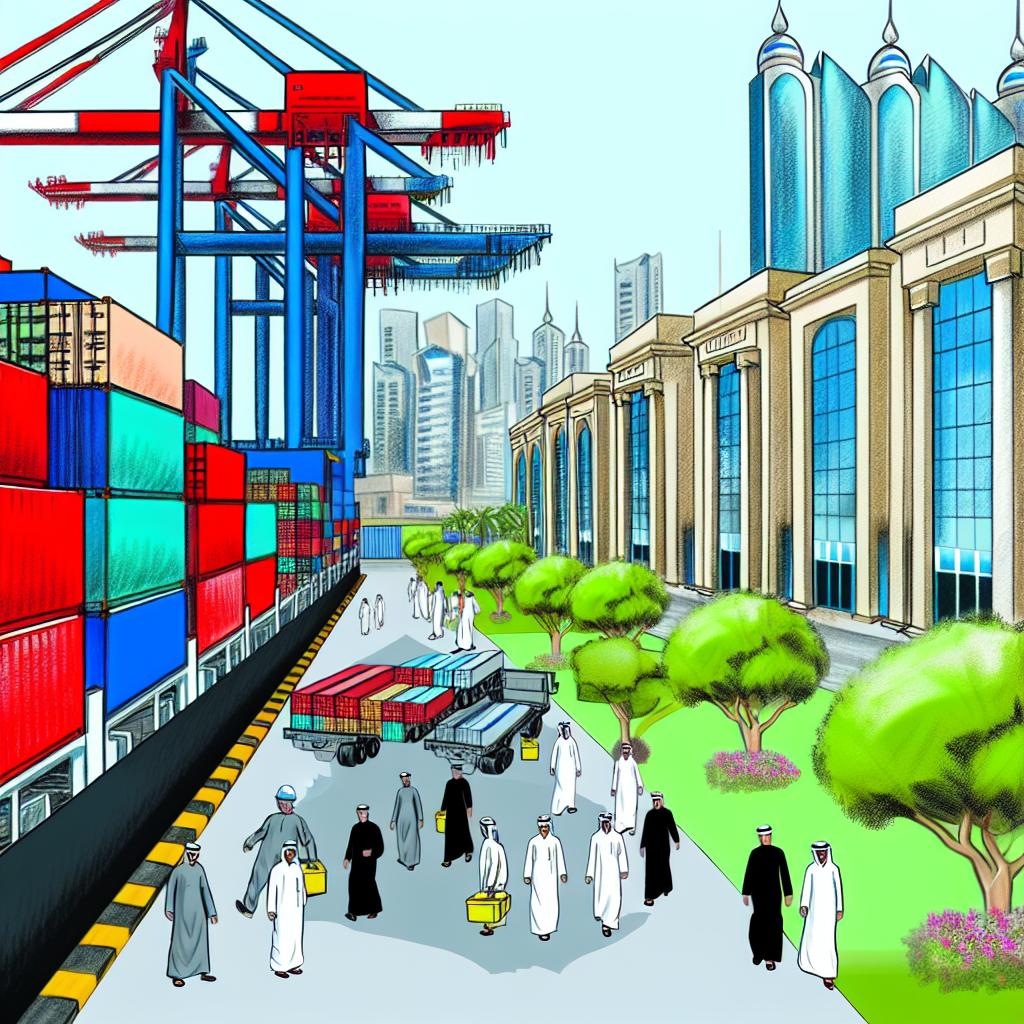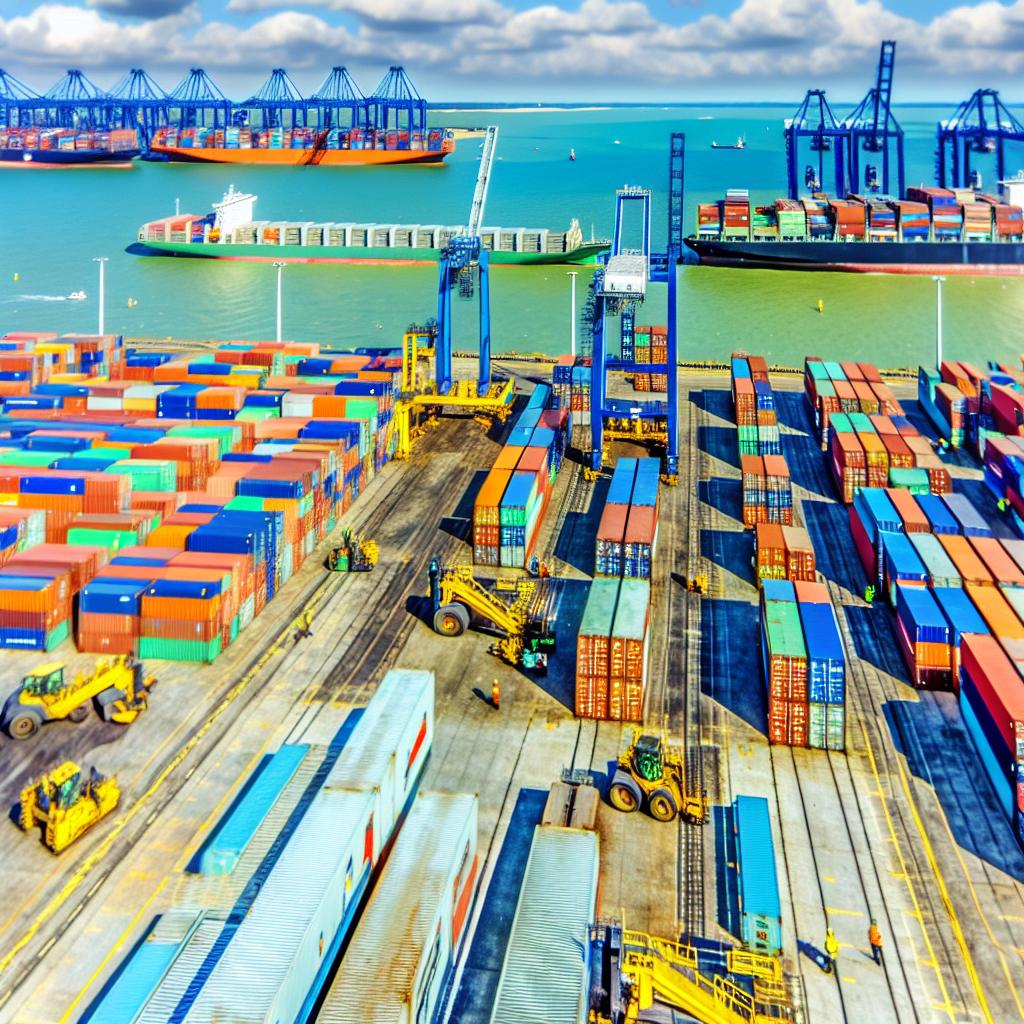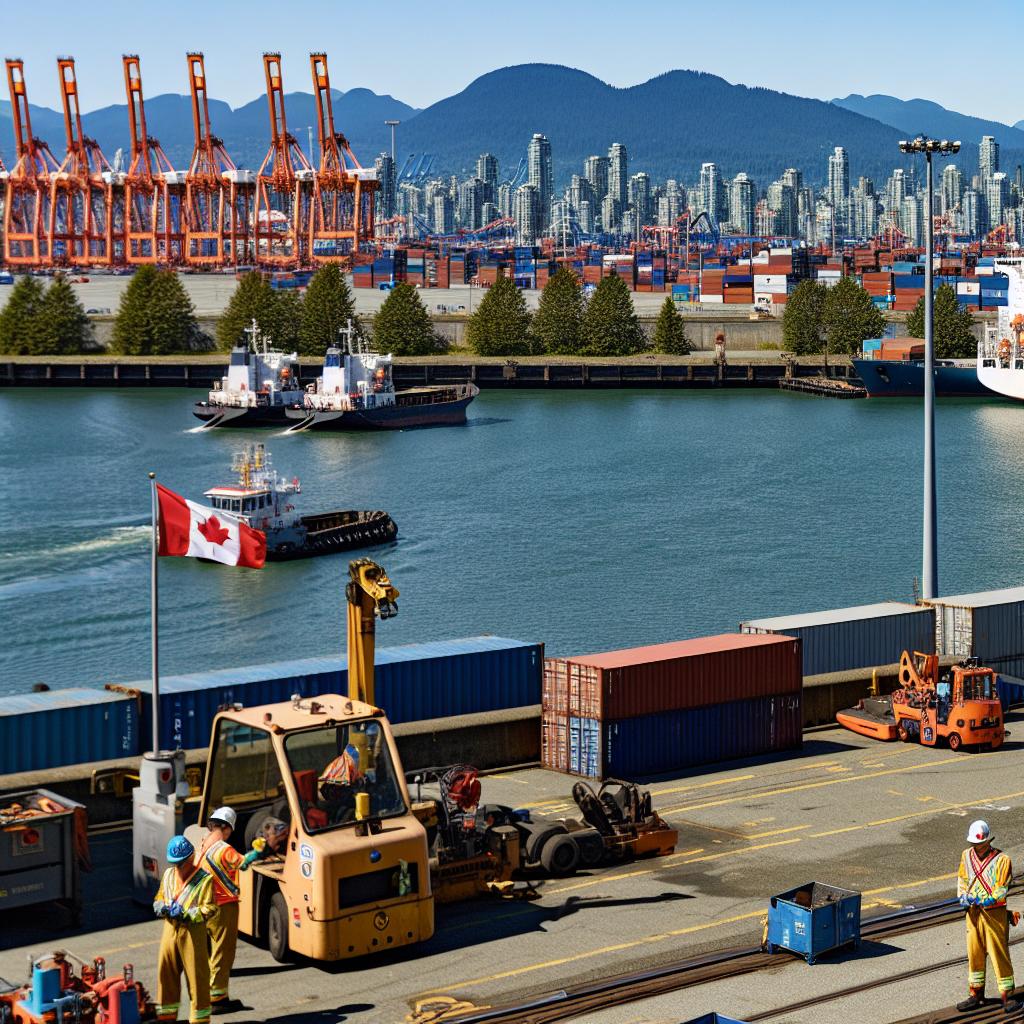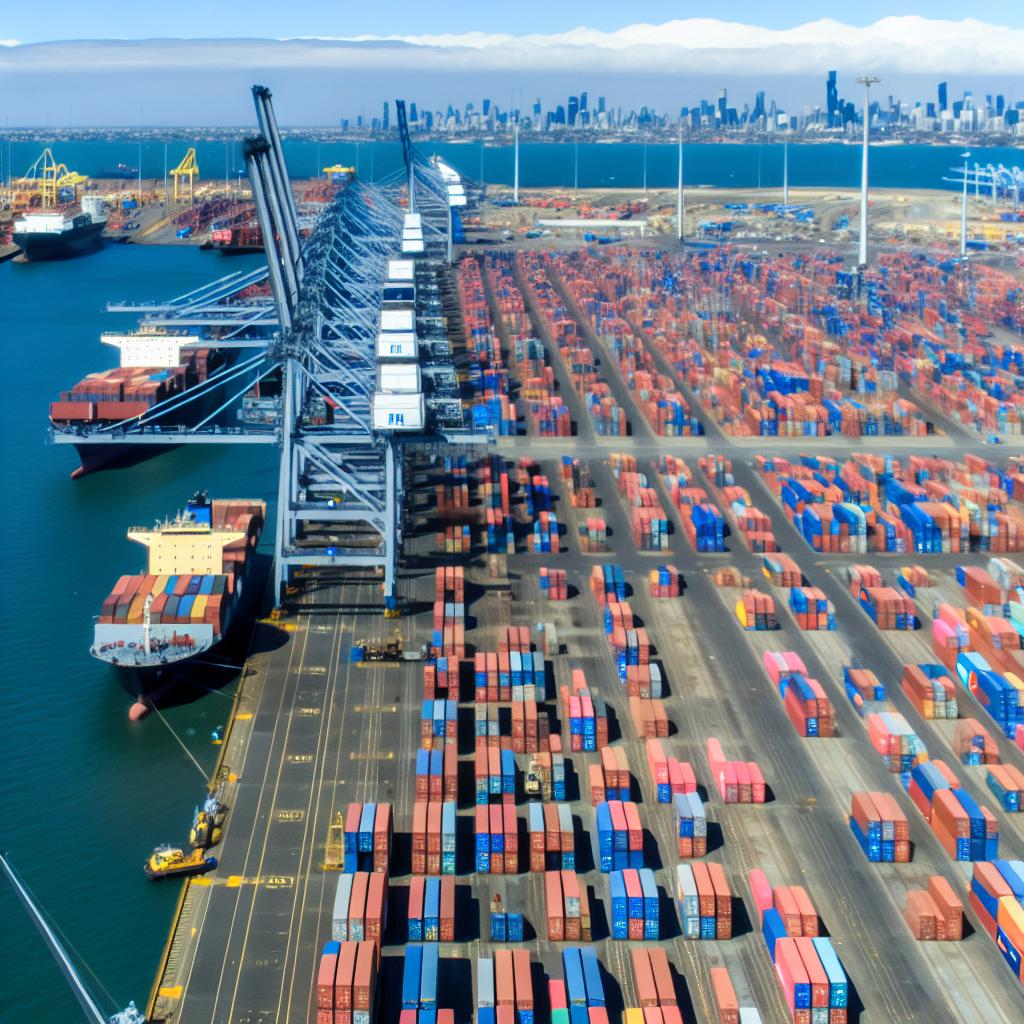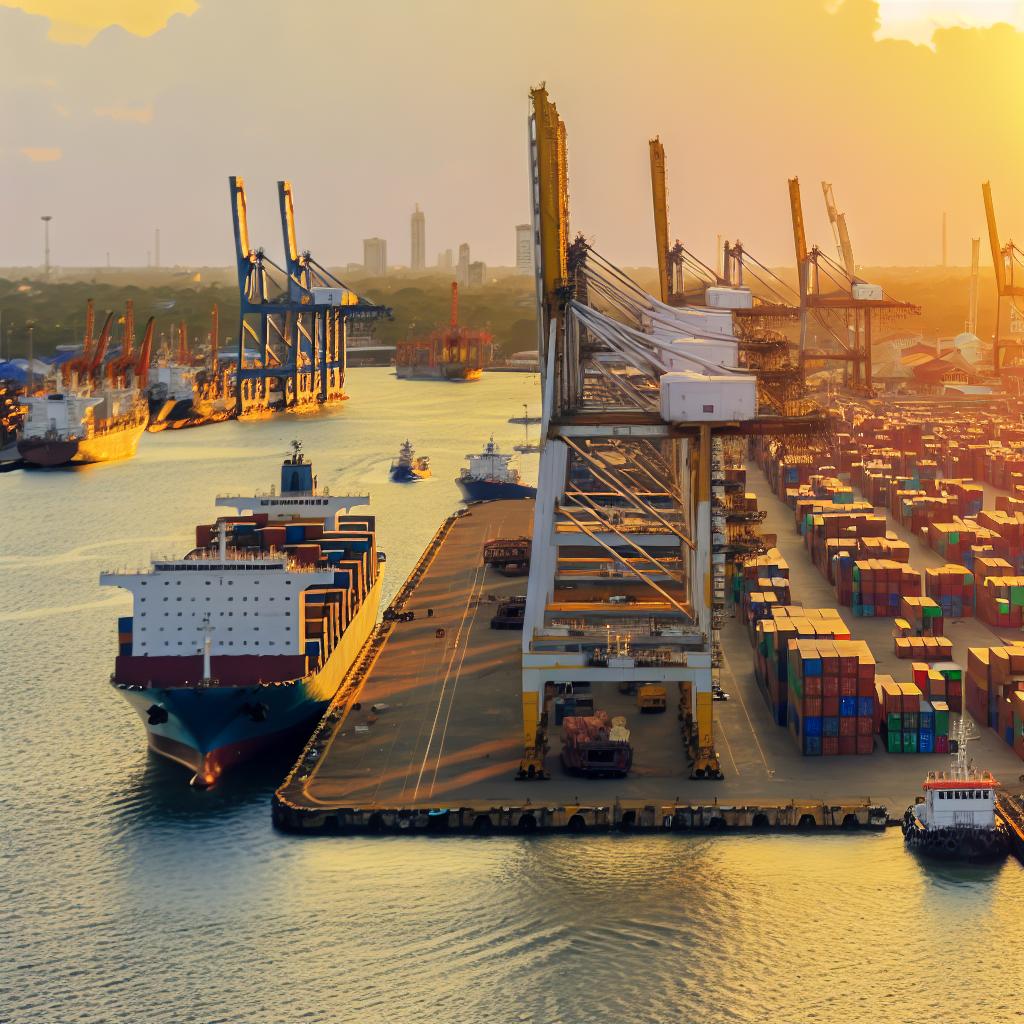The Port of Jebel Ali: A Strategic Maritime Hub
The Port of Jebel Ali, strategically located in Dubai, United Arab Emirates, stands as a vital maritime facility, not just for the nation but for the entire Middle East region. Established in the late 1970s, Jebel Ali has developed into the world’s largest man-made harbor and plays a crucial role in facilitating trade and logistics throughout the region. Over the years, this port has become indispensable, supporting both the regional and global supply chains with its state-of-the-art facilities and strategic advantages.
Infrastructure and Capacity
The comprehensive infrastructure of Jebel Ali Port is designed to support the ever-growing scale of global maritime commerce. With facilities capable of accommodating the largest vessels afloat today, its infrastructure underscores the port’s commitment to efficiency and modernization.
Terminals and Technology
The port encompasses several terminals equipped with cutting-edge technology to facilitate the handling of both containerized and bulk cargo. Each terminal’s design caters to specific transportation needs, offering tailored solutions for different cargo types. Advanced loading and unloading systems ensure minimal vessel turnaround times, a critical factor in maintaining the flow of goods worldwide.
Deep-water Berths
At the heart of Jebel Ali’s infrastructure are its deep-water berths designed to receive ultra-large container vessels (ULCVs). These berths allow for the handling of ships that were previously unable to dock at ports without such specialized facilities. The ability to accommodate larger vessels increases the port’s throughput capacity, reinforcing its position as a pivotal hub in global maritime networks.
Strategic Location and Connectivity
Jebel Ali’s geographical position offers unprecedented connectivity advantages. The port acts as a linchpin between the rapidly growing markets of the Far East and the mature markets of Europe and Africa. This strategic location ensures that the port remains a fulcrum for east-west trade, thereby facilitating international commerce and enhancing global supply chains.
Regional Accessibility
Its proximity to other significant regional trade centers enhances Jebel Ali’s connectivity, allowing for efficient integration within wider trade networks. This accessibility translates into reduced shipping times and costs, tangible benefits that attract numerous shipping lines and logistics companies to the port.
Integration with Free Trade Zones
An essential element of Jebel Ali’s advantage lies in its integration with the Jebel Ali Free Zone (JAFZA), one of the world’s most prominent free trade zones. This close relationship between the port and the free zone is a unique synergy that maximizes operational efficiency.
Economic Incentives
The Jebel Ali Free Zone offers numerous economic incentives to attract global businesses, including 100% foreign ownership, income and corporate tax exemptions, and streamlined customs procedures. These incentives create a business-friendly environment that is critical for companies looking to establish a presence in the Middle East, effectively enhancing the region’s trade landscape.
Enhanced Logistical Operations
The integration of the port and the free zone ensures comprehensive logistical support. Companies based in JAFZA benefit from access to extensive shipping, warehousing, and distribution networks. This integration allows goods to be moved swiftly and efficiently across the region and internationally, providing a tangible advantage over less integrated trade centers.
Economic Impact and Future Prospects
The economic significance of the Port of Jebel Ali extends far beyond its immediate vicinity. It is a key contributor to the UAE’s economy, generating jobs and fueling trade and investment. The port’s continued expansion and modernization efforts ensure that it remains relevant amidst shifting global trade patterns.
Contributing to the UAE’s Economic Strategy
Looking ahead, the Port of Jebel Ali is poised to remain a cornerstone of UAE’s broader economic strategy. The government and port authorities are committed to ongoing investments aimed at expanding port capacity and technological advancements. These efforts are vital to maintaining its competitive edge in the rapidly evolving maritime industry.
Responding to Global Trade Shifts
As global trade dynamics shift, the port continually adapts to maintain its strategic relevance. By investing in new technologies and expanding its facilities, the Port of Jebel Ali accommodates the changing demands of international trade. This adaptability ensures its essential role as a hub in the global maritime trade landscape will endure well into the future.
In summary, the Port of Jebel Ali’s strategic location, expansive infrastructure, and seamless integration with the Jebel Ali Free Zone positions it as an unrivaled leader in global maritime trade. Its impact on regional and global logistics, supported by continued investments and strategic foresight, affirms its position as an essential pillar in the economic landscape of the UAE and beyond.
